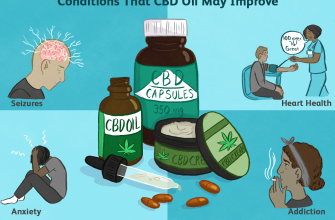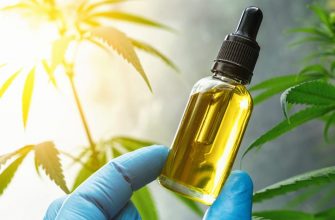CBD and weight loss
CBD can help weight loss due to how it works in the body.
The body has a built-in endocannabinoid system. This system responds to various compounds in the body through two cannabinoid receptors called CB1 and CB2 receptors.
Typically, CB1 receptors are located primarily in the brain and central nervous system and are virtually absent in the rest of the body. CB2 receptors are located throughout the body.
However, in obese people, CB1 receptors become more abundant, especially in adipose tissue. Because of this, researchers believe there may be a link between CB1 receptor activation and obesity.
CBD does not directly activate cannabinoid receptors, but acts on the body’s natural cannabinoids (endocannabinoids) to block or activate the receptors. This may play a role in weight loss or other important metabolic functions.
There is some evidence that CBD can help a person lose weight or prevent metabolic disorders.
CBD hemp oil crystalline – hemp seed oil, …
Price
Original price before discount€30.00
Price: €24.99
2186.63 ₽
854.91 ₴
CBD hemp oil crystalline - hemp seed oil, ...
Price
Original price before discount€42.90
Price: €26.99
2361.63 ₽
923.33 ₴
CBD oil crystalline - hemp seed oil enriched ...
Price
Original price before discount€72.90
Price: €44.99
3936.63 ₽
1539.11 ₴
Claims and studies
Some people claim that CBD:
-
Decreases appetite
Many proponents say the compound can help a person lose weight by reducing appetite.
Most people associate cannabis with increased appetite, as people who smoke cannabis feel more hungry than usual. The truth is that tetrahydrocannabinol (THC), the psychoactive ingredient in cannabis, can make you feel hungry, while CBD does not.
THC activates CB1 receptors in the body, causing a variety of effects, including appetite stimulation. However, as the authors of one 2018 study note, CB1 receptor antagonists may help reduce appetite and control obesity. This is because CB1 receptor agonists block or "deactivate" the receptor.
CBD does not deactivate CB1 receptors, but it can interfere with other molecules to block them. Turning off these receptors may help reduce appetite and prevent overeating in some people.
An older animal study from 2012 found that exposure to CBD reduced appetite in rats. While there is a lot of anecdotal evidence that CBD is beneficial for appetite suppression, there have been no direct studies that have shown that CBD reduces appetite in humans.
-
Turning bad fat into good
Proponents of CBD for weight loss also claim that it can convert white or "bad" fat into brown fat, which can help the body burn calories.
White fat may also increase the risk of many chronic diseases such as heart disease and diabetes.
A 2016 study helps support this claim. Researchers have found that CBD plays several roles in how the body interacts with fat.
CBD not only helped convert white fat cells to brown, but also stimulated the body to break down fat more efficiently.
The researchers note that CBD may be a promising therapy for preventing obesity, but more human studies are needed.
-
Fat burning
Another claim is that CBD melts fat in the body by breaking down fat and helping to remove it as waste from the body.
Research in 2018 helps explain this phenomenon. The process of turning white fat cells into brown fat cells actually changes how they work in the body.
Brown fat cells may be a more active form of fat. They burn energy as heat, which means they actually burn calories.
Because calorie loss is important for weight loss, CBD can help burn fat if it converts white fat to brown fat in the body.
-
Reduces the risk of metabolic disorders
As noted in other 2018 studies, there is a strong link between obesity and certain metabolic disorders such as type 2 diabetes, high blood pressure and high cholesterol.
Overactivation of receptors in the body may be partly responsible for this. Hyperactivation of CB1 receptors in adipose tissue throughout the body may contribute to obesity and metabolic risks.
CBD helps block CB1 receptors, which may reduce the risk of obesity.
The "Cannabis and Cannabinoid Research" review also noted some of the highlights of past research related to CBD and metabolic factors, mostly in animal models.
For example, treatment with CBD reduced total cholesterol by 25 percent in obese rats. The anti-inflammatory and antioxidant effects of cannabidiol have also been found to lower blood sugar levels and increase indicators of liver health.
Risks and reasoning

While the initial research findings on CBD and weight loss hold some promise, there are a few important things to consider:
- CBD, or any other compound, supplement is not a treatment for obesity. These supplements and compounds are not a substitute for a healthy diet and regular exercise.
- A person who adds CBD to their weight loss plan without exercising and eating properly may not see any benefits.
- At best, people may consider CBD as a complementary therapy. Not all bodies are the same and each person may need a slightly different dose.
- Someone who is heavier or who uses cannabis regularly may need a higher dose, while someone who is very sensitive to cannabis or CBD may need a small amount for the compound to be effective.
- It is best to work directly with a doctor when using CBD for weight loss. The combination of CBD with medications that the person is taking should be discussed with the doctor in order to cause unwanted interactions.
Price
Original price before discount€69.90
Price: €39.90
3491.25 ₽
1364.98 ₴
Price
Original price before discount€38.90
Price: €24.90
2178.75 ₽
851.83 ₴
Price
Original price before discount€27.90
Price: €22.90
2003.75 ₽
783.41 ₴





